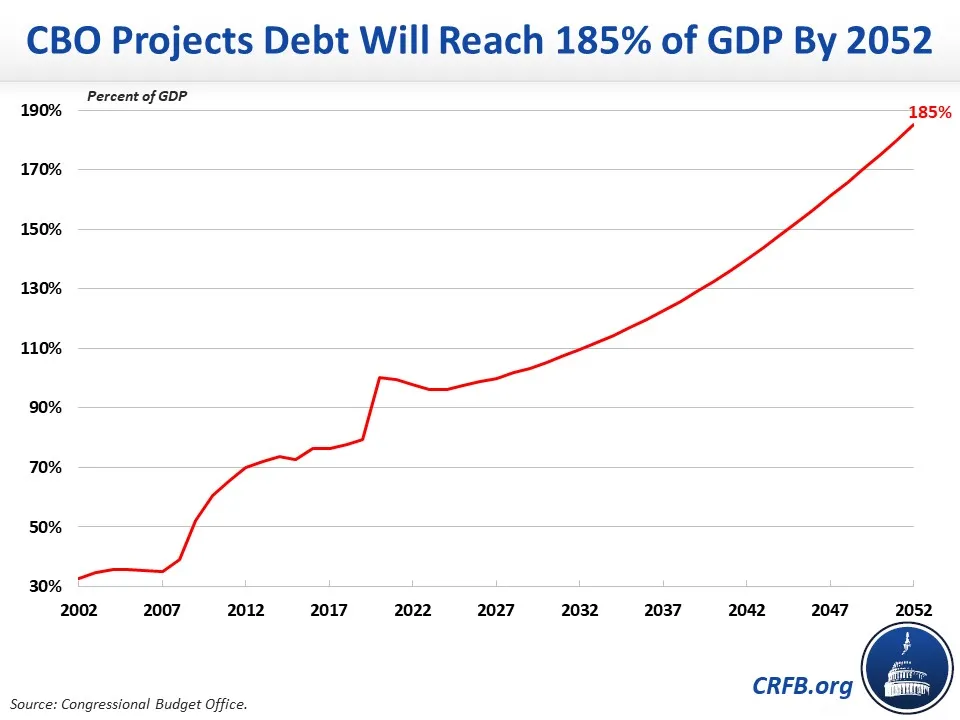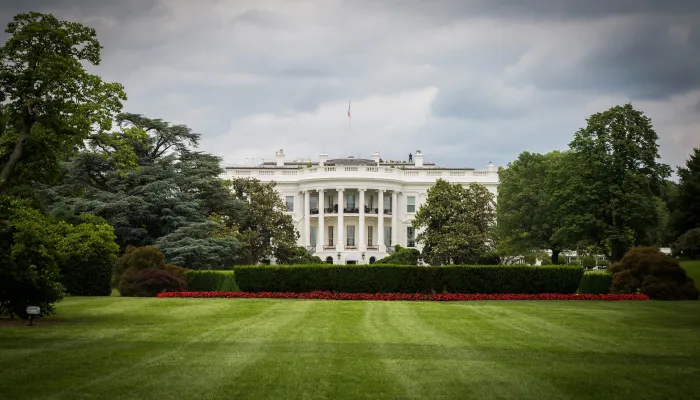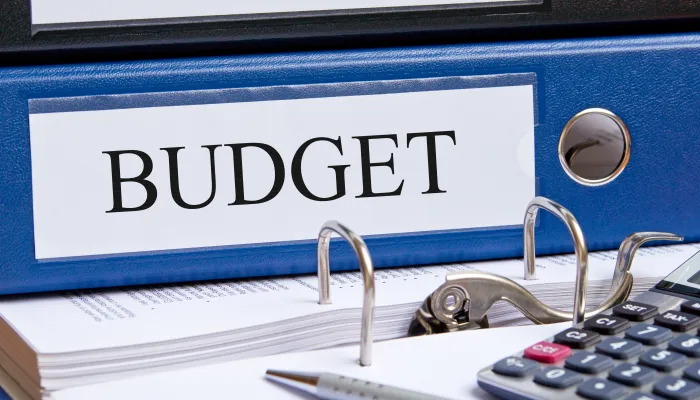CBO Releases July 2022 Long-Term Budget Outlook
The Congressional Budget Office (CBO) just released its July 2022 Long-Term Budget Outlook, its first extended baseline since March 2021. CBO's long-term budget projections have improved since March 2021 but are still troubling. After rising from 79 percent of Gross Domestic Product (GDP) at the end of Fiscal Year (FY) 2019 to 98 percent of GDP by the end of 2022, CBO projects debt will rise further to 185 percent of GDP by 2052 under current law. If policymakers extend expiring tax provisions and grow annual appropriations over time, debt levels could be even higher.

Meanwhile, budget deficits will recover from their COVID response-driven increase but otherwise maintain an upward trend. Specifically, the deficit will rise from 3.9 percent of GDP in FY 2022 to 6.1 percent in 2032, 8.5 percent in 2042, and 11.1 percent in 2052. CBO's deficit projection of 11.1 percent of GDP in 2052 will be higher than at any time in modern history outside of World War II and the COVID-19 pandemic, and over three-times the 50-year average of 3.5 percent of GDP.
Rising deficits and debt are driven by a disconnect between spending and revenue. Under current law, spending will grow from 23.5 percent of GDP in FY 2022 to 30.2 percent in 2052, while revenue will reach only 19.1 percent of GDP by 2052. Long-term spending growth is largely driven by rising health, retirement, and interest costs. CBO estimates spending in these three categories will grow by 10.1 percentage points of GDP between 2022 and 2052, which is more than the projected 6.7 percentage points increase in total spending.
High near-term borrowing has contributed to current surging rates of inflation. Over the long-run, CBO warns that failure to address our mounting debt levels will have additional adverse and potentially dangerous consequences. Ultimately, rising debt will slow income and wage growth, increase interest payments on the national debt, place upward pressure on interest rates, reduce the fiscal space available to respond to an economic recession or other emergency, put an undue burden on future generations, and heighten the risk of a fiscal crisis.
The Committee for a Responsible Federal Budget will publish our full analysis of CBO's July 2022 Long-Term Budget Outlook later today.


